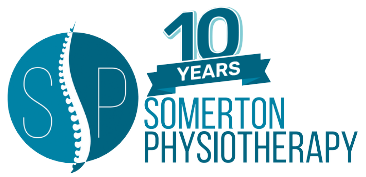What Does Frozen Shoulder Feel Like?

Frozen shoulder also known as adhesive capsulitis is a painful condition in which shoulder movements can become very restricted. It can affect one shoulder or both simultaneously. It commonly occurs spontaneously but can also occur following shoulder injury such as rotator cuff injury or after periods of immobilisation. It usually affects those over age 40 and is more common in women than in men. The incidence is two to four times higher in diabetics than in the general population.
Presentation
-
- It usually presents as pain before stiffness
-
- Bilateral frozen shoulder occurs in 14% of patients
-
- There is usually a gradual onset of severe pain in the shoulder that is associated with stiffness
-
- Common limitations include inability to sleep on the affected side and restriction of daily activities like driving and dressing
Three phases of frozen shoulder are often described:
Phase 1 – severe generalised pain associated with stiffness. It can last up to nine months.
Phase 2 – pain gradually subsides but the shoulder remains stiff. Movement can become more limited in particular external rotation. This phase lasts between four and twelve months.
Phase 3 – the shoulder becomes less stiff and there is an increase in range of movement. This phase can take one to three years.
Common approaches to management include:
-
- Patient information leaflets
-
- Encouraging early activity
-
- Physiotherapy with joint mobilisation combined with stretching exercises
-
- Pain relief using paracetamol or non-steroidal anti-inflammatory drugs if there are no contraindications.
Injection of the shoulder with corticosteroids can reduce pain and duration of symptoms in the early stages.
Physiotherapy for Frozen Shoulder can prevent worsening of your range of movement and help maintain the strength of the shoulder muscles in frozen shoulder.
We regularly treat this shoulder problem in our clinics here in Dublin 15, using an approach based on current research evidence. While it can be a long road to full recovery – early physiotherapy assessment and treatment can aid in easing the pain and stiffness associated with frozen shoulder.
To get in touch email us on [email protected] or phone us on (01) 9069566 . Follow us on Instagram for physiotherapy and clinic Updates.
